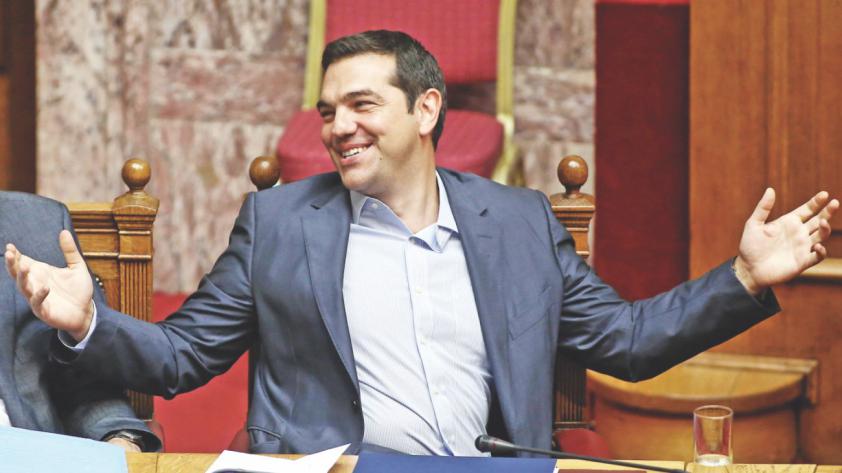-
Tips for becoming a good boxer - November 6, 2020
-
7 expert tips for making your hens night a memorable one - November 6, 2020
-
5 reasons to host your Christmas party on a cruise boat - November 6, 2020
-
What to do when you’re charged with a crime - November 6, 2020
-
Should you get one or multiple dogs? Here’s all you need to know - November 3, 2020
-
A Guide: How to Build Your Very Own Magic Mirror - February 14, 2019
-
Our Top Inspirational Baseball Stars - November 24, 2018
-
Five Tech Tools That Will Help You Turn Your Blog into a Business - November 24, 2018
-
How to Indulge on Vacation without Expanding Your Waist - November 9, 2018
-
5 Strategies for Businesses to Appeal to Today’s Increasingly Mobile-Crazed Customers - November 9, 2018
Greek Opposition Leader Attempts to Form New Coalition
Greek Prime Minister Alexis Tsipras announced his resignation and called for early elections in the crisis-hit country, as he tackles a rebellion by hardliners within his governing left-wing party who oppose the terms of the country’s new bailout.
Advertisement
Head of this group will be the leader of the Platform and former Energy Minister Panagiotis Lafazanis, reported the Greek agency ANA.
The Syriza Labour Minister, George Katrougalos, said that the government needed to “reconfirm its mandate” to implement the third Greek bailout and that the party is “crippled by a number of dissident Mps”.
Greece’s conservative opposition leader Vangelis Meimarakis said on Friday he would try to cobble together a government with parties from the current parliament to avoid a negative impact from early elections.
Alexis Tsipras, Greece’s prime minister, handed in his resignation and called a snap election last night (Thursday), saying he had a “moral obligation” to lay his actions before the judgment of the people.
“We are trying to find solutions”, Meimarakis said Thursday.
Opinion polls have yet to show how much support Popular Unity commands but Mr Lafazanis said the referendum result would be a good guide.
Tsipras lost support from the far-left of this party after agreeing to domestically unpopular reforms such as more austerity and a range of economic policies.
‘He had to do something to ensure that the government is viable, ‘ said programmer Christianos Misailidis, but added: ‘Right now, it is as if there is no government’. Tsipras has insisted that although he disagrees with the bailout conditions, he had no choice but to accept and implement them.
Opting for a fresh election was seen as an attempt by Tsipras to face down the internal challenge by Syriza rebels and strengthen his position.
Meimarakis has three days to seek coalition partners, after which the mandate would be given to the third-largest party in Parliament for a further three days.
“The likely pause in legislating for reforms during the election campaign coming so soon after the agreement was concluded may rekindle or reinforce some creditors’ concerns about Greece’s ability to meet the program’s requirements”, Fitch said.
Greece’s European creditors did not appear dismayed by Tsipras’ move, which was widely expected.
Advertisement
His decision to return to the ballot box deepens political uncertainty on the very day Greece began receiving funds under its €86bn bailout programme, five years after a previous government took the first bailout from the eurozone and IMF.





























